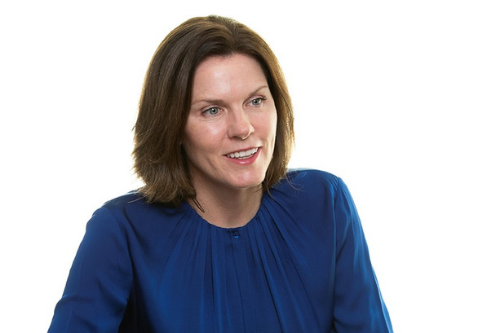

“What an interesting time to get involved in the insurance industry.”
That was the thought that occurred to Tara Foley (pictured), AXA UK and Ireland’s new retail insurance CEO, when she first became aware of the opportunity to take on the role. Foley highlighted that there is a clear acceleration of change in the space, and this is particularly evident in the retail sector, she said, where COVID is accelerating the digitisation piece while the FCA’s new rules around pricing seem set to change the market’s dynamic.
Taking on a senior leadership role while a global health crisis continues to unfold may not seem an enviable task, but Foley noted that when a great opportunity presents itself, the right answer is to embrace it.
“I have to say my experience of onboarding has been fantastic,” she said. “Of course, it’s not without its downsides as you can’t physically meet as many people as you would like to. So, if we continue on the trajectory that we’re on, I’m very much looking forward to getting to go out to sites and meet people and have those customer conversations, which will be fantastic. But given all the constraints that we’re all operating within, my experience of onboarding has been really positive as technology has enabled so many great interactions.”
Her new role with AXA seems a natural next step for Foley, whose career to date has offered her samples of just about every corner of the financial services market. During her tenure with Lloyds Banking Group, she served in a variety of positions including as COO for Scottish Widows and as MD of Bank of Scotland – experiences that have given her a clear insight into the variety that exists within a career in financial services.
“It’s interesting as people think of financial services as one big block, but anyone who’s in it knows the nuances between the different careers - even within one organisation never mind an entire sector,” she said. “I think what has really struck me about the insurance industry is the depth and the breadth of what’s on offer, in terms of careers. From the outside looking in, people don’t necessarily understand that insurance offers a huge amount of optionality.”
Foley commented on the responsibility that the insurance market has, something she feels has been really brought home by COVID-19. Insurance too often is seen as a grudge purchase, she said, and the need for insurance is only ever truly felt by those who have to use it. That’s why it is incumbent upon the industry to make sure that customers understand why protection is important and to offer them that protection in a way that’s fair to an individual, but also to wider communities.
“And I’m also [interested in] the wider industry conversations that are going on in the space - with regulators around our relationships with our customers, and with governments around sustainability,” she said. “If you think about it, it’s very broad – it goes from insuring homes and how you can help nudge customers towards making greener choices to [exploring] how we ourselves can make greener choices in terms of product design, etc.
“Then it goes to thinking about the future of vehicles, of driving, and we can help our customers lean into that as well. We have a really important and strategic role to play in moving society forward and I’m really excited to be part of that.”
From having worked across so many aspects of the financial services sector, Foley said what really catches her eye about the insurance industry is that, to the uninitiated, it might seem to be a dry profession but that it is actually hugely engaging once you are part of its makeup. A clear, albeit not often utilised example of this, is how the insurance sector has been on the frontline of understanding the importance of data science, long before its role in driving innovation and change became more broadly apparent.
“The insurance industry is built on data science, that is its bedrock,” she said. “So if anyone has the expertise in this space, insurance does, and I think we can probably leverage that a bit more. For me, I’ve been really struck by some of the talent that we have in that space in the organisation, because I remember, with my previous hat on, really trying to attract that type of talent into the organisation and struggling. Whereas here, because of our actuarial capability, our pricing, our modelling, etc, that is so core to the business – and it’s something I think we can really leverage to differentiate ourselves.”
